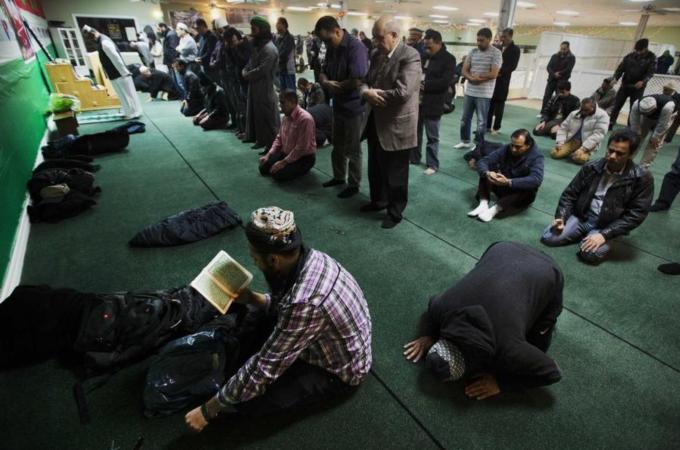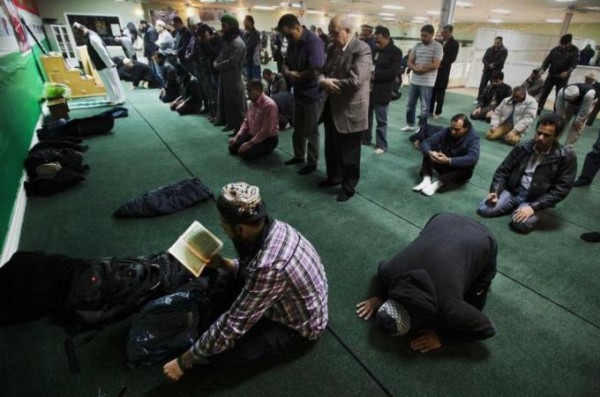
By: Steven Zhou
Source: http://www.aljazeera.com/
On January 14, the National Council of Canadian Muslims (NCCM) issued an open letter to Canadian Prime Minister Stephen Harper. The letter urges the prime minister to disinvite Rabbi Daniel Korobkin as a member of the delegation accompanying him on his first trip to Israel.
NCCM’s Executive Director Ihsaan Ghardee pointed out that Korobkin introduced and praised Pamela Geller and Robert Spencer last September at a lecture sponsored by the Jewish Defense League (JDL). Both Geller and Spencer are part of Stop the Islamization of America (SIOA), a hate-group according to the Anti Defamation League and the Southern Poverty Law Center.
In response to NCCM, the Harper’s Director of Communications Jason MacDdonald recently brushed aside the group’s recommendation with the following statement made on behalf of the Prime Minister’s Office: “We will not take seriously criticism from an organisation with documented ties to a terrorist organisation such as Hamas.”
NCCM is now suing Harper for libel.
This exchange is just the latest episode in a battle that Canadian Muslims have fought since 9/11 – the battle to shape Canadian public opinion on issues related to Muslims and Islam.
The public opinion of fear
The tragedy of September 11, 2001 has induced an urge among many people in the West to ask questions about the ethical beliefs of Muslims. This urgent curiosity has created a vacuum within Western nations, waiting to be filled with answers. Canada is one such society, and Canadian Muslims have a vested interest in answering these questions correctly. Groups like NCCM have tried to ensure that the right answers fill these vacuums.
Unfortunately, it can be argued that the loudest and most prominent answers in Canada have not come from individuals or groups that represent the bulk of Canadian Muslims. This, according to numerous polls, has resulted in widespread Islamophobia.
Statistics Canada estimated in 2011 that around a million Muslims live within Canadian borders. The Muslim community’s relative youth, and therefore lack of cohesion, make it difficult, from a media and public relations standpoint, to project their voice – especially with regard to issues like terrorism, perhaps the biggest hot-button issue, post-9/11. After all, there are many other voices to contend with.
A primary example of this predicament is manifested by the Canadian public’s reaction to the so-called phenomena of radicalisation – the rather vague process through which well-functioning individuals become violent extremists. One incident aptly illustrates this kind of perception.
In 2006, the Royal Canadian Mounted Police (RCMP) arrested 18 individuals in Mississauga, Ontario who were suspected of plotting bomb attacks on Parliament Hill and downtown Toronto. Only a handful ended up being convicted and imprisoned.
Subsequent to this event, a narrative of radicalisation and fear was strengthened in Canada, and continues to impact the Muslim community today. The Canadian Security and Intelligence Service’s (CSIS) actual expenditures for fiscal year 2005-2006 was $356 million, which was $71 million more than the previous years. Prior to that, increases in CSIS’s budget since 9/11 hovered around $10 million.
One interesting piece of evidence of this prevailing narrative can be found in the rather short-lived fame of certain “de-radicalisation” or “detox” centres set up in the GTA since the 2006 arrests. Groups like the Al Sunnah Foundation offer to “detoxify” Muslims who are exhibiting signs of extremism. A 12-step “theological detoxification” programme is then applied to wash away the patients’ deadly ideologies.
Exactly what these signs of “radicalisation” are is still anyone’s guess, and the Al Sunnah Foundation, led by Ahmed Amiruddin, along with other like-minded groups have failed to secure government funding. Nevertheless, Amiruddin and figures like him, knowingly or unknowingly, have gained media attention and notoriety for their work, and have, in some ways, become unofficial spokespersons for the community.
Their talk of “deradicalisation”, along with Canadian law enforcement’s magnified focus on catching radicalised Muslims, have dominated the public sphere’s concerns about the Muslim community. The reality is that such a representation of Muslims in Canada is mediated by fear and bears little resemblance to reality.
Actual radicalisation occurs at a miniscule level within the community, and though an important concern, still poses a relatively small threat to the wider society. Even Prime Minister Stephen Harper noted last year that there is no “mass phenomenon” of radicalisation in Canada.
Meanwhile, a truly representative voice within the Muslim community remains absent, and the public narrative about them continue to be influenced by those on the outside.
Omar Khadr and his fellow Canadians
Perhaps the most illustrative example of Canadian Muslims’ failure to shape public opinion is the tragic case of Omar Khadr.
Rightly described by Canadian Senator Romeo Dallaire (one of the few Canadian voices to advocate for Khadr) as “the only child soldier prosecuted for war crimes”, Khadr, a Canadian citizen, was only 15 when he killed US combat medic Sgt First Class Christopher Speer with a grenade in 2002. He was then captured and sent to Guantanamo Bay almost immediately, and would have remained there indefinitely had he not signed a plea deal in 2010 that saw him plead guilty to five war crimes. He was eventually repatriated back to Canada in September 2012, where he serves the rest of his sentence.
A nation-wide survey conducted in 2012 by Abacus Data, a polling and market research firm based in Ottawa, showed that 53 percent of Canadians saw Khadr as a security threat and shouldn’t be allowed back in Canada.
A large section of Canadian society viewed Khadr and his family as the worst example of Muslim extremism in the post-9/11 era, and chose to overlook the fact that by any standard, Khadr should be seen as a child soldier. In fact, Canada played a leading role in developing the international Optional Protocol on the Rights of the Child in the Involvement of Children in Armed Conflict, which came into effect in 2002.
It is important to note that this public relations debacle exists today partly because of the Muslim community’s own inaction. For instance, one of the few Canadian civil society groups that regularly advocated on behalf of Khadr was the Coalition for the Repatriation of Omar Khadr, a broad-based effort made up of mostly non-Muslim individuals.
Many Muslim activists were involved, but the bulk of Canadian Muslim community failed to project a loud enough voice with regard to this issue. Further evidence of this can be seen in the frustration from Khadr’s crusading Canadian lawyer at the time, Dennis Edney. “I have never met someone like Omar who has been so abused and so abandoned by those who should know better,” said Edney in a 2008 lecture held at the University of Toronto at Mississauga. “I keep looking for that Muslim voice, I’m tired of Muslims hiding.”
In the end, the repatriation of Omar Khadr was a result of the plea bargain Khadr took, combined with sustained international condemnation by groups like Amnesty International and Human Rights Watch, as well as limited domestic Canadian pressure.
A future of fear
The great Muslim Canadian public relations debacle has not gotten better in the era of Stephen Harper and his right-wing Conservative Party who rule the House of Commons.
As long as the Canadian Muslim community fails to influence and shape public opinion on the defining issues of the post-9/11 age, the narrative of fear and suspicion will continue to dominate their relationship with the rest of Canada.
Politicians like those from the Parti Quebecois (FR) will continue to exploit this climate by using the politics of fear, best exemplified by the Parti’s proposed “Quebec Charter of Values” bill, which seeks to forbid government employees from donning religious garb while working.
Groups like NCCM are trying to change the tide, but if larger organisations like the Islamic Society of North America-Canada (ISNA-Canada) don’t follow suit, the vast majority of Canadians will continue to ignore the problem.
The views expressed in this article are the author’s and do not necessarily reflect those of MuslimVillage.com.




